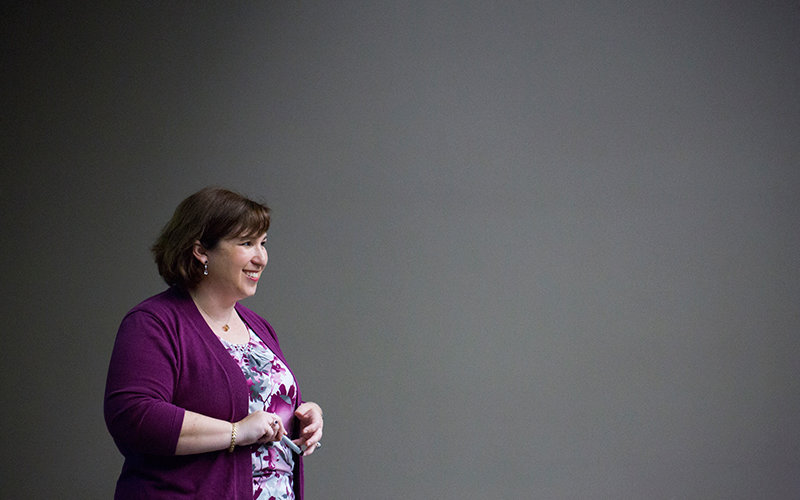
As the nation’s new president swiftly moves to enact his legislative agenda, the campaign promise to “repeal and replace Obamacare” — also known as the Affordable Care Act (ACA) — hangs in the balance.
Shana Alex Charles, a CSUF assistant professor of health science and health care policy expert, predicted last fall that a repair of the act is more likely than a complete overhaul. That prediction is moving closer to reality, as Republicans temper their demands to dismantle the legislation that has given 20 million more Americans access to health care.
With a 20-year perspective on health care reform in California, Charles is the lead author of a new report, “The State of Health Insurance in California: Findings from the 2014 California Health Interview Survey.” The report was released Jan. 31 by UCLA’s Center for Health Policy Research and funded by The California Endowment.
“I’ve been following health care reform in California throughout the 2000s — before and after the ACA was enacted in 2010,” said Charles. “We finally have some really good data that’s coming out about 2014-15.”
Charles presented the statewide research, along with a national snapshot of health care reform, during a Feb. 2 lecture presented by the University’s Osher Lifelong Learning Institute (OLLI).
Key findings from the report include:
- The number of uninsured Californians ages 64 and under fell from 5.32 million in 2012 to 4.46 million in 2014.
- Among the self-employed, the ACA resulted in a nearly 9 percent decrease of uninsured Californians.
- About 1.4 million more adults gained coverage under the Medi-Cal program.
“In California, we have one of the most successful implementations of the ACA in the country,” said Charles. “California has done a quick and skilled job of expanding its coverage, with mostly bipartisan agreement that insuring people is important.”
While California has enjoyed some legislative consensus on health care reform, other parts of the nation are more divided. The Democratic vision of working to insure as many people as possible often clashes with the Republican responsibility to reduce federal spending, said Charles.
“It’s very hard to increase coverage and quality at the same time, without also increasing federal government costs,” said Charles. “There’s no perfect proposal. The same debates that we’re having in this classroom we could be having as a legislature.”
Even Medicare, widely regarded as a successful federal health insurance program for people ages 65 and older, has its flaws.
“When I was in my master’s program, I heard how wonderful Medicare was and that every provider in the country takes Medicare. That is not the case anymore,” said Charles. “That is the issue with having one big government program — do they squeeze providers to the point where they don’t want to take insurance anymore?”
Looking ahead at the national health care system, Charles said one key area for improvement is provider reform.
“Every health insurance system has a financing side and a provider side. In our system, there is a disconnect between the insurance companies, their enrollment and even their list of providers,” said Charles. “So when we’re talking about giving people coverage, whether or not they can actually see providers is another issue.”
Charles is one of many University faculty members who continue to share their expertise with the campus community and beyond.
“The information Dr. Charles imparted was absolutely invaluable, in particular for OLLI members because many of us are on Medicare,” said Janice Jeng, vice president of programs for OLLI. “All of our speakers are volunteers, and we appreciate them taking the time to share their knowledge.”